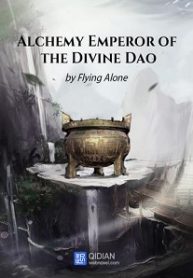Holy Roman Empire - Chapter 266
Chapter 266: Chapter 15: Sensation
After a week of prospecting, Father Buckege gave his final answer, “Congratulations, Your Excellency the Baron. You are about to become rich.
рlease reading οn ΒʘXΝOVEL.ϹΟM
This is an alluvial mine, where the surface river sand contains up to 8 grams of gold per ton, and the lower layer of ore even reaches 16 grams.
The goldmine spreads along the river for two kilometers and is preliminarily estimated to potentially contain as much as 50 tons of gold. Once you register with the colonial government, this mine will be yours.”
Upon hearing this news, everyone became excited; such a rich mine was not commonly found in Austria.
The exultant Baron Feckney forcefully suppressed his emotions and immediately declared, “Not just I am going to be rich, but all of us will make a fortune.
Rest assured, everyone, the original agreement still stands. The gold mine belongs to all of us, including the boys who sacrificed themselves in search of the goldmine; they too have a share.
I can assure you with the honor of the Strele Family that half of the proceeds from the gold mine will belong to you, as soon as we complete the registration in the colony.”
(vitag.Init = window.vitag.Init || []).push(function(){viAPItag.display(“vi_765923973”)})
“Now let’s defend this goldmine that belongs to us together!”
Discovering the goldmine also meant that the most dangerous moment had arrived. In overseas colonies, due to immense profits and uneven distribution, conflicts were all too common.
Not to mention internal strife, even leaking the news before reporting the property right to the colonial government was extremely dangerous.
In the face of huge profits, betrayals were not uncommon—on the open lands of the African Continent, the greatest danger wasn’t the jungles, the cannibal tribes, but the countless peers.
With his wealth not being substantial, Baron Feckney had nearly spent all he had on equipping his men with weapons, naturally, he had no money left to pay their salaries.
Since there was no money, he could only make promises. Sharing the profits from the goldmine was the core of keeping his team together.
Clearly, the reputation of the Strele Family held a significant status in the minds of these people. If not for the long-standing hierarchy, the atmosphere on-site would have been even more fervent.
“Generous your Excellency the Baron, please rest assured that we will defend the goldmine to the death!”
“Respected your Excellency the Baron, don’t worry, as long as we are not dead, the goldmine won’t be lost!”
The crowd asserted their promises in a cacophony of voices.
With everyone’s assurance, Baron Feckney showed a delighted smile. Only after pacifying his subordinates could he proceed to the colonial registration with peace of mind.
(vitag.Init = window.vitag.Init || []).push(function(){viAPItag.display(“vi_765923973”)})
Even with the property rights secured, the safety of the goldmine was not guaranteed. This was the African Continent, where desperadoes were abundant, so guarding the goldmine was of paramount importance.
Some weaker colonial teams, even if they found a goldmine, did not have the strength to extract it and could only sell it to the colonial government for a one-time profit.
Clearly, Baron Feckney was not so short-sighted. Selling the goldmine to the colonial government might bring at most half a million to six hundred thousand Divine Shield, but mining it himself could result in profits that might reach several million Divine Shield.
After securing the property rights of the goldmine, the news of the discovery in Guinea quickly spread back to the homeland.
Belvedere Palace
Franz, who was striving to procreate, was also captivated by this news. Goldmines meant wealth, and it was easy to imagine that before long, a gold rush would sweep through Guinea.
Franz had some recollection of the Guinea Gulf Gold Coast, but he had no way of knowing the exact location of the goldmine.
Many place names of later centuries did not exist in this era, and even if he remembered, it would have been of no use.
Like the goldmine now discovered in Guinea, it was a big question mark whether it was within the future territory of Guinea.
This region of the African Continent was still no man’s land. The colonial government also had no concept of sovereignty; whoever occupied it owned it.
The neat borders of future African countries were actually determined during the Berlin Conference. Before that, there were no clear boundaries for different regions; it was a case of finders keepers.
(vitag.Init = window.vitag.Init || []).push(function(){viAPItag.display(“vi_765923973”)})
The harsh reality made Franz abandon the dream of getting rich from mining gold. However, using the news of gold to attract settlers was a good strategy.
In the gold rush, the few who got rich were always a minority; most ended up spending all their money without finding gold, and ultimately had to remain in the colony and find a job to make ends meet.
The African Continent may not abound in much else, but it did have plenty of land. With adequate manpower to develop the local land, the profits generated would far exceed those from one or two goldmines.
The maid’s voice rang out, “Your Majesty, the ministers of the Cabinet are here.”
“Hmm, I will be right there,” Franz responded.
The allure of a goldmine was enormous, especially a large and rich one which attracted many people’s attention, including that of the Vienna Government Cabinet.
If the gold were converted into money, its allure would probably reduce significantly. One ton of gold was worth only 273,200 Divine Shield, so fifty tons of gold would amount to just over thirteen million Divine Shield.
Actually, mining for gold also had its costs, and the ultimate net profit might only be around three to four million Divine Shield, and it would take time to mine the gold, which spread out annually, would amount to only a return of a few hundred thousand Divine Shield.
To Franz, this was just a small sum of money, and for the Vienna Government, it was only a day’s fiscal revenue.
Clearly, such calculations weren’t that simple. The government’s main use for gold was to serve as a reserve for issuing currency, which contained much greater potential profits.
Finance Minister Karl said with great enthusiasm, “Your Majesty, a large goldmine has been discovered on the African Continent. After analysis by geological experts, there might be other goldmines nearby. The colonial government has already sealed off the news.
(vitag.Init = window.vitag.Init || []).push(function(){viAPItag.display(“vi_765923973”)})
If we now organize manpower for a comprehensive exploration, we are bound to make significant gains, and the African Colony will soon turn from loss to profit.”
Franz felt puzzled; he had not heard of any large mineral veins clusters in Guinea. It wasn’t strange to find one large goldmine, but the discovery of a swath of goldmines could not have gone unnoticed without causing a sensation.
However, Franz did not rush to deny the Finance Minister’s claim. In this era, colonies were freely developed and expanded. If a colonial team had ventured into Guinea and discovered a gold mine, he would not find it surprising in the least.
Guinea was not large, and there was no expecting the colonial teams to act along the modern national boundaries. Only they knew the actual extent of their activities.
Minister of Colonization, József Jellacic, proposed, “Your Majesty, the Gulf of Guinea has always been known as the ‘Golden Gulf.’ Now that gold has been discovered in Guinea, it means that the gold resources in this region are not yet exhausted.
Now, before the news leaks out, we should send troops to occupy this area completely and then search for gold mines at leisure!”
Franz shook his head, unfolded a map, drew several lines, and asked, “It is possible to expand in the Gulf of Guinea, but the British, Portuguese, Dutch, and French all have outposts along the coastal areas.
We cannot possibly confront so many countries at once, so the best strategy would be to bypass these outposts and expand from the interior. Is that feasible?”
The name ‘Golden Gulf’ was too renowned. Although few new gold mines had been discovered there in recent decades, the region had become the hub of the African slave trade, attracting slave traders from various countries.
Despite their individually weak strength, once united, they would not be so easy to deal with. Furthermore, it could implicate the whole body when plucking a single hair. If the backing countries got involved, Austria’s dream of monopolizing the Gold Coast would be pure fantasy!
József Jellacic confidently replied, “Your Majesty, the colonial outposts of these countries in the region are mostly private initiatives, not government-organized.
(vitag.Init = window.vitag.Init || []).push(function(){viAPItag.display(“vi_765923973”)})
We too could dispatch civilian armed groups to compete with them, and it is feasible to establish some outposts along the coastal area without necessarily driving them out.
As long as we have a substantial number of settlers in the region, we will have the initiative in colonization. Until significant gold mines are discovered, government intervention from other countries will be limited.
If we can establish a strong advantage before then, we can resolve the rest through negotiation, simply dividing territories in the region according to each power’s strength.”
Civilian armed forces are the mainstay of colonial activities for governments overseas. Even if conflicts arise, there is room for maneuver, and governments would not be directly dragged down.
After hesitating for a moment, Franz circled several areas on the map of Africa and said, “Let’s aim for these regions as our targets; they are all likely to have large gold deposits.
However, our true goal is not gold. The most precious wealth in the African Continent is its undeveloped fertile land, followed by some natural minerals, and lastly, gold.
Even if gold is abundant, what then? The annual extraction is limited, and it’s simply not worth investing vast resources to confront other countries.
Therefore, if it’s not feasible, it is best to give up. Gold might exist along the coast, but there is more inland.
We do not have the capacity to develop the interior deeply, but we can grant freedom to civilian organizations to carry out their operations.
If the countries focus their efforts on fighting over Ghana and the Ivory Coast, then we shall tackle the tough nut of Nigeria and seize the opportunity to clarify the interests in West Africa.”
Upon hearing Franz’s explanation, everyone was taken aback. Such discourse might be perceived as heretical for maritime powers, but could only come from a land power like Austria.
It is not to say that the others were short-sighted, but gold mining could yield profits within just a year or two; whereas establishing plantations and growing cash crops would not bear fruit for five or six years at least.
(vitag.Init = window.vitag.Init || []).push(function(){viAPItag.display(“vi_765923973”)})
And this is assuming there are enough settlers. Regrettably, all major colonial empires were short on people. The populations at home were barely sufficient; who then could afford to develop colonies?
The small countries such as the Netherlands and Portugal, with native populations of less than five million, are not worth mentioning. Even England and France only have populations of over thirty million, and their growth rates are nearly as slow as a snail’s, with vast colonies that they simply cannot develop in time.
By contrast, the situation in Austria is somewhat better. The country has fewer colonies, a substantial domestic population, and a population growth rate far exceeding that of Western Europe, allowing it to have ample human resources for in-depth development.
Finance Minister Karl reminded, “Your Majesty, if the government gives up its monopoly on the gold mines, I fear our colonies will remain unprofitable for a long time.”
“Such a loss is within our tolerance. By relinquishing the monopoly on the gold mines, we can gain a massive influx of immigrants.
We can artificially maintain the gold rush for at least five or six years. As long as one-third of these prospectors decide to stay, our footing on the African Continent will be secure,” Franz answered calmly.
Those mining for gold may not necessarily make money, but those providing logistical support to the prospectors are sure to profit.
What the government needs is a colony that can sustain long-term development, not one that prospers from gold mining and then falls into depression after the gold mines are exhausted.
Are the colonial losses genuine? It all depends on how one calculates.
If we solely consider tax revenue and administrative and military expenses, the accounts might show a deficit. However, the gold rush also creates a market that can broaden the sales of Austrian domestic industrial and commercial goods.
For instance: tents, water bottles, shovels, hardware, ships…
So many related industries getting orders will inevitably yield substantial tax revenue, contributing back to the fiscal income.
If that can’t cover the losses, then the government can purchase gold locally to be used for currency reserves and make a profit from the currency tax, right?
Many countries have unprofitable colonies, yet everyone still hangs on, indicating the underlying benefits.
The Vienna Government lifted the blockade, and news of the discovery of large gold mines in Guinea quickly spread throughout the New Holy Roman Empire, and then to the entire Germany Region.
This was just the beginning. Following Baron Feckney’s discovery of the gold mine, others also found gold mines, albeit not as vast.”
No matter, as long as there was gold, that was enough. Even some mines with gold content too low to be worth mining were slyly promoted by the unscrupulous Colonial Department.
After all, they were all gold mines. The authorities simply revealed the reserves and provided ambiguous figures for gold content in the ore.
For example: 0.8 to 45 grams; a content of 0.8 grams per ton might not be the lowest figure, but 45 grams per ton was certainly the highest—indeed, far higher than the actual highest content.
Such data were sufficient to fool the public, as the gold content of each ore is different. Having such a wide discrepancy is normal—after all, even the worst gold mine may occasionally produce high-quality ore!
The media also cooperated very well with the propaganda, promoting stories of individuals getting rich overnight during the gold rush. For instance, Baron Feckney became a household name, known overnight as a millionaire.
As for the inconvenient truths that the wealth was still buried underground and that mining for gold also required costs, the media decisively ignored them.














